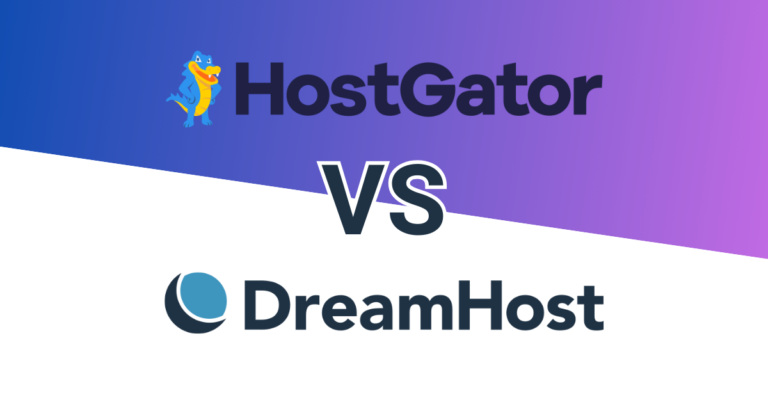When deciding between DreamHost vs HostGator, it can be challenging to know which web host is the right fit for your website. In this comprehensive comparison, we’ll break down the key differences in pricing, performance, ease of use, security, and more to help you make an informed decision. Whether you’re starting a blog, building an eCommerce store, or launching a business site, this guide will give you all the details you need to choose the best hosting provider for your needs in 2024.
Table of Contents
Pricing Plans
When comparing DreamHost vs HostGator in terms of pricing, both providers offer a variety of plans tailored to different needs, but there are key differences worth noting.
DreamHost Pricing: DreamHost offers competitive pricing across its shared hosting, VPS, dedicated, and cloud hosting plans. For shared hosting, DreamHost’s pricing starts at around $2.59 per month if you opt for a three-year commitment. VPS plans begin at $10 per month, and dedicated servers are priced from $165 per month. DreamHost also includes a free domain for the first year and free SSL certificates, making it a value-packed option for those on a budget.
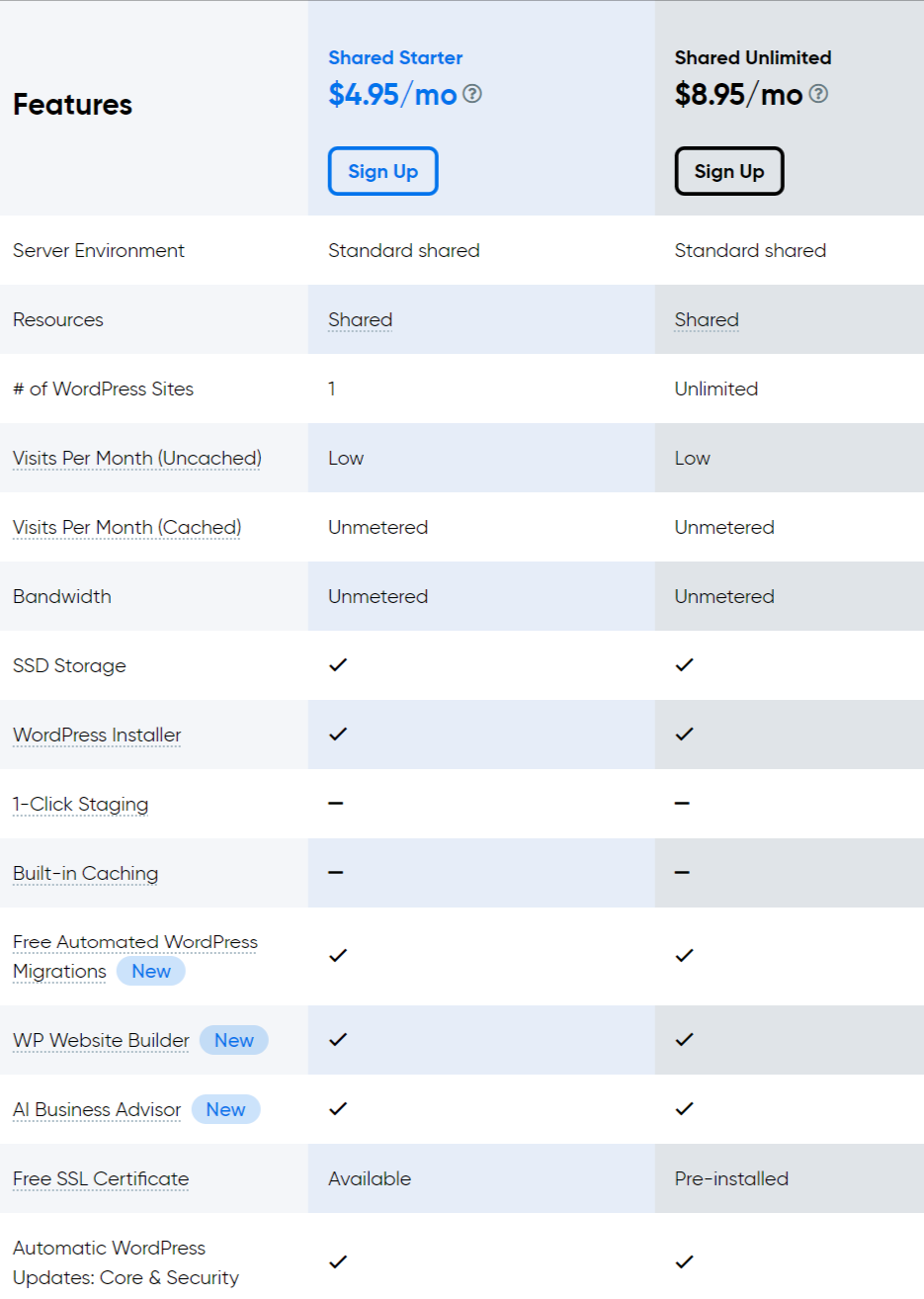
HostGator Pricing: HostGator provides a similar range of hosting plans. Their shared hosting starts at $3.75 per month with a three-year plan, and their VPS plans start at $34.99 per month. HostGator’s dedicated servers start at $141.19 per month, which is slightly more affordable than DreamHost. HostGator also includes a free domain for the first year, along with free SSL certificates and unmetered bandwidth.
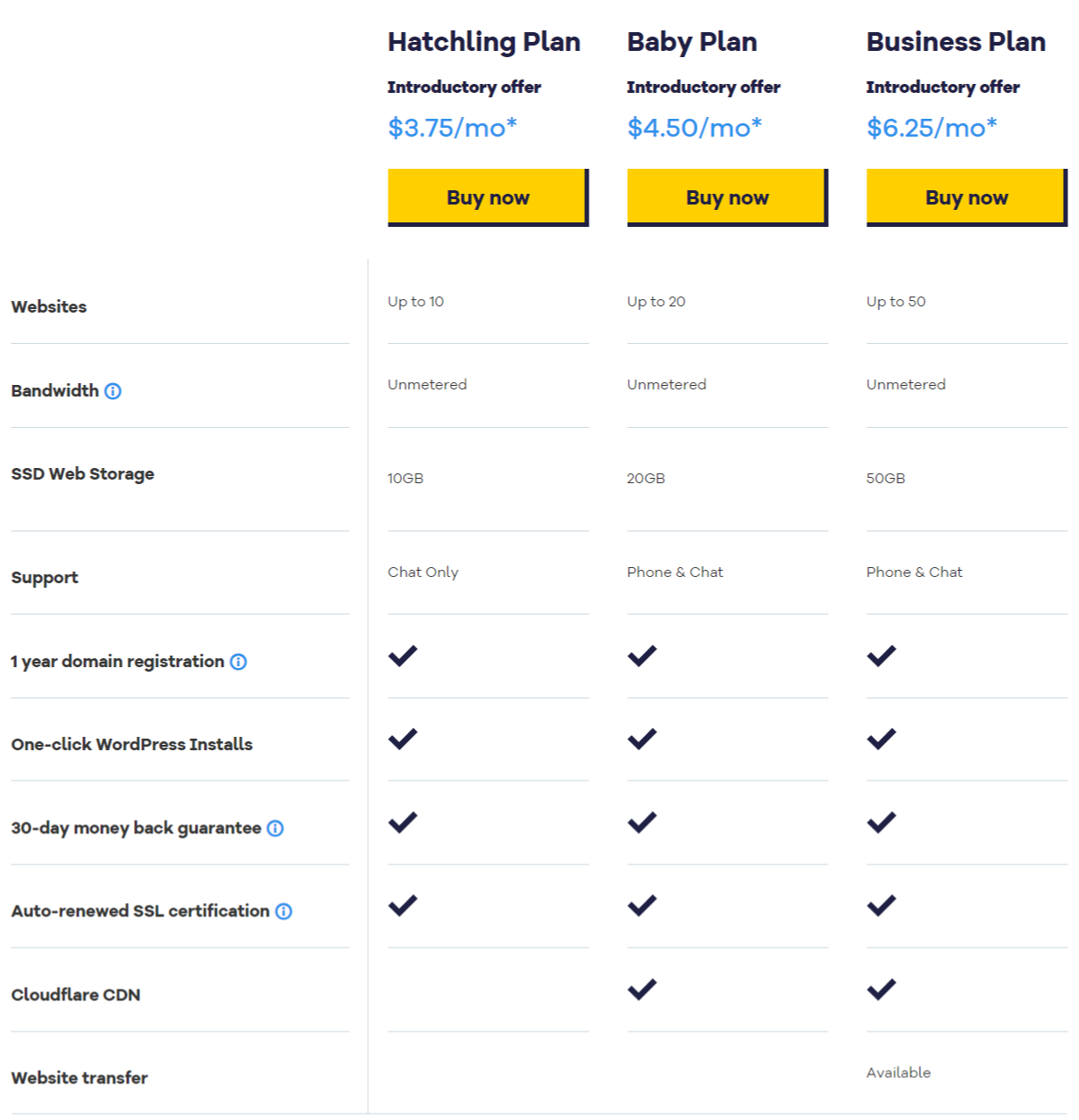
In the DreamHost vs HostGator pricing debate, both offer low entry-level pricing, but HostGator tends to offer more discounts and promotions, especially for new customers. However, DreamHost’s renewal rates are generally more stable and don’t spike as much as HostGator’s after the initial term.
Performance and Uptime
When considering DreamHost vs HostGator, performance and uptime are critical factors. Both providers claim to offer excellent speed and uptime, but there are differences in how they deliver these promises.
DreamHost Performance and Uptime: DreamHost guarantees a 100% uptime, which is quite ambitious compared to industry standards. While no provider can realistically deliver 100% uptime all the time, DreamHost’s infrastructure is known for its reliability. They use SSD storage for faster data access and have built-in caching tools to optimize speed, especially for WordPress sites. In terms of performance, DreamHost’s data centers are designed to handle high traffic without lagging.
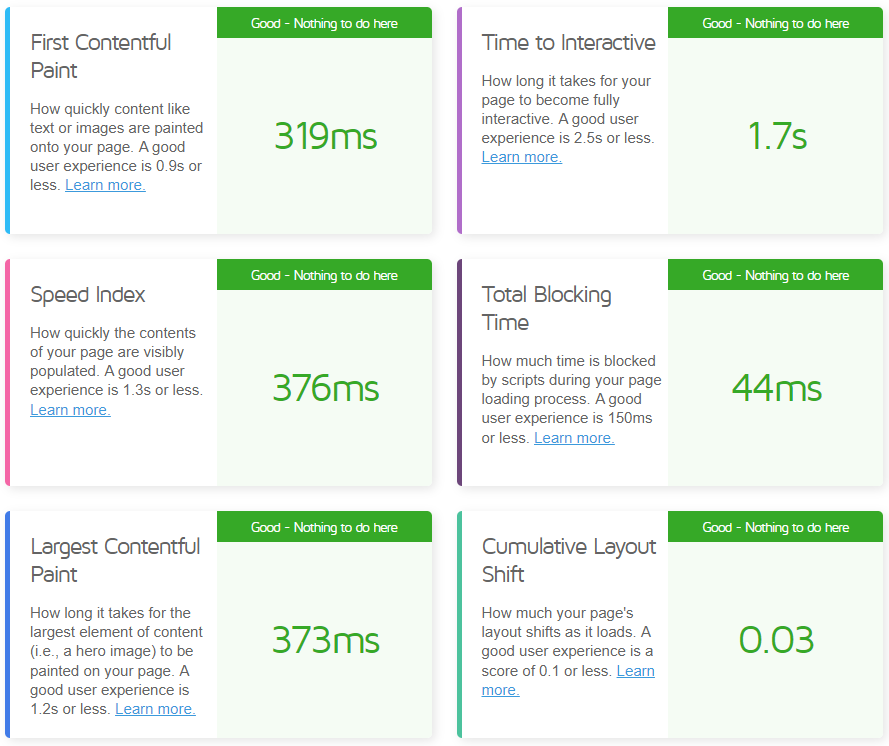
HostGator Performance and Uptime: HostGator offers a 99.9% uptime guarantee, which is standard in the industry. They also provide solid performance, thanks to their advanced server technology, including SSDs and multiple layers of caching. However, some users report occasional slowdowns during peak traffic times. HostGator offers a global content delivery network (CDN) via Cloudflare integration, which helps improve load times for websites with a large number of global visitors.
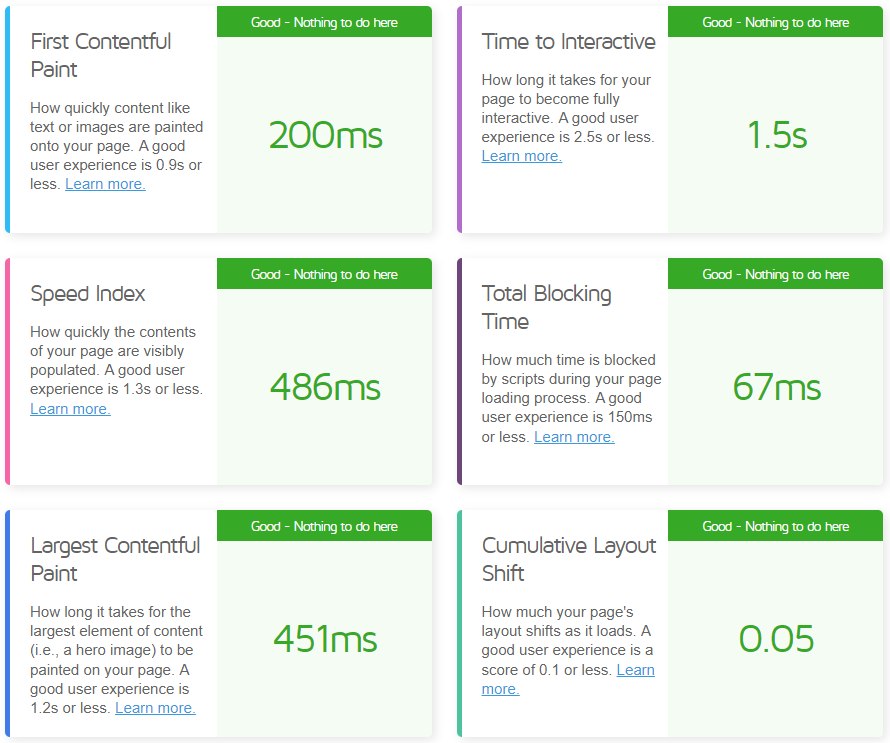
In the DreamHost vs HostGator performance battle, DreamHost’s 100% uptime guarantee stands out, though HostGator’s 99.9% uptime is still strong. DreamHost may edge ahead slightly in speed consistency, especially for WordPress hosting, but both are capable of handling demanding websites.
Ease of Use
When it comes to DreamHost vs HostGator, ease of use is a key factor, especially for beginners or users who want a smooth, hassle-free experience setting up their websites.
DreamHost Ease of Use: DreamHost is known for its custom-built control panel, which is designed to simplify website management. Instead of using the traditional cPanel interface, DreamHost’s panel is streamlined and user-friendly. This can be an advantage for those who are new to web hosting, as it reduces clutter and makes tasks like managing domains, email, and backups easier to find. However, some advanced users might prefer the flexibility of cPanel. DreamHost also has one-click installers for WordPress and other popular CMSs, making it easy to get started with a website in minutes.
HostGator Ease of Use: HostGator uses the industry-standard cPanel, which is familiar to many users and provides a wide range of tools for managing your website. For beginners, HostGator offers a helpful website builder and one-click installs for WordPress and other applications. The learning curve with cPanel might be slightly steeper for those unfamiliar with web hosting, but its powerful tools make it versatile for both beginners and advanced users. Additionally, HostGator has a QuickInstall feature, which simplifies the setup of websites, blogs, and eCommerce stores.
In the DreamHost vs HostGator ease-of-use comparison, DreamHost’s custom interface may be simpler for total beginners, while HostGator’s cPanel offers more flexibility for users who need more control and are familiar with the industry standard.
Customer Support
Customer support is a crucial aspect when choosing between DreamHost vs HostGator, especially for users who may need help with technical issues or setting up their websites.
DreamHost Customer Support: DreamHost offers 24/7 support through a ticketing system, email, and live chat. However, phone support is not available by default. You can request a callback, but it comes at an additional cost. DreamHost’s support is known for being knowledgeable and helpful, particularly in resolving WordPress-related issues. They also have an extensive knowledge base and a robust community forum where users can find answers to common questions without needing to contact support directly. The live chat feature is a convenient option, though response times can vary during peak hours.
HostGator Customer Support: HostGator provides 24/7 support via phone, live chat, and email, making it more accessible for users who prefer phone-based help. Their customer service team is responsive, and live chat wait times are typically short. HostGator also offers a comprehensive knowledge base and a wide variety of tutorials to help users troubleshoot issues on their own. However, some users have reported inconsistent support quality, particularly during high-traffic periods.
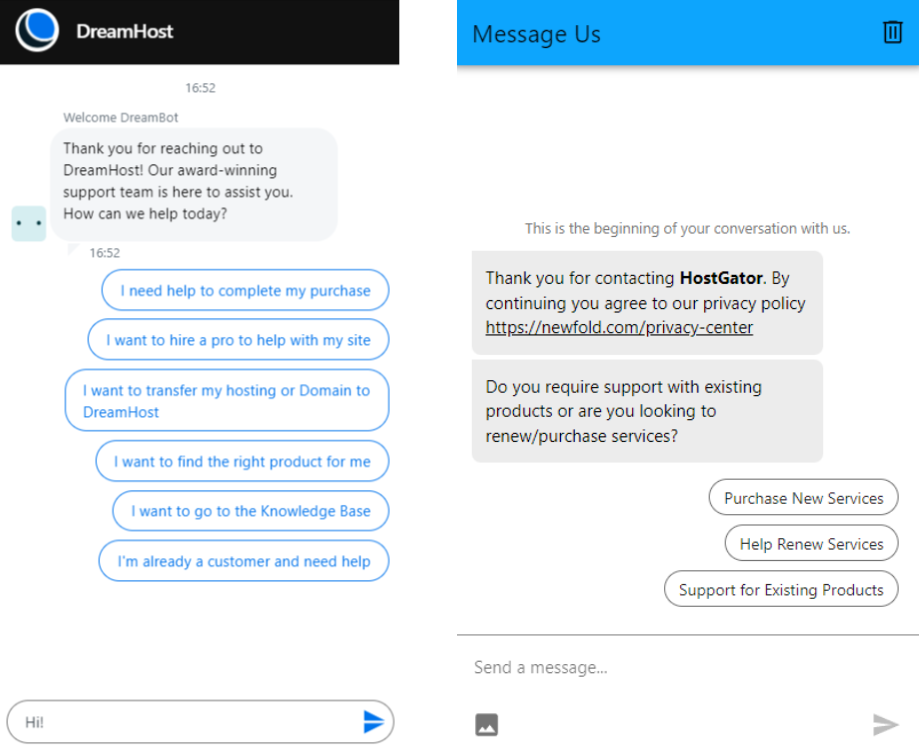
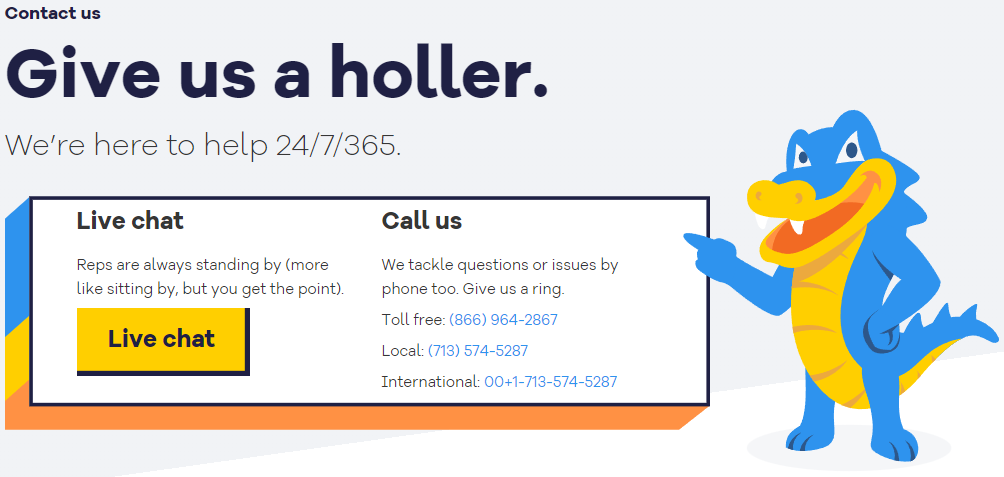
In the HostGator vs DreamHost customer support comparison, HostGator edges ahead with its 24/7 phone support, while DreamHost’s support is slightly more limited but still reliable for most users.
Security Features
When comparing DreamHost vs HostGator, both providers offer essential security features, but their pricing structures differ.
DreamHost Security: DreamHost includes several security features at no extra cost. Free SSL certificates, daily automated backups, DDoS protection, and built-in firewalls are all part of their standard plans. Additionally, DreamHost offers free domain privacy protection, ensuring your personal information stays private without any extra fees.
HostGator Security: HostGator provides free SSL certificates and DDoS protection with all plans. However, for more advanced security options, such as malware scanning with SiteLock and automatic backups with CodeGuard, users need to pay additional fees. SiteLock starts at around $7.99/month, and CodeGuard begins at $1.99/month.
In terms of security value, DreamHost offers more features included in the base price, while HostGator requires additional payments for advanced protections.
Money-back Guarantee
When considering the DreamHost vs HostGator comparison, their money-back guarantee policies offer some key differences.
DreamHost Money-back Guarantee: DreamHost provides an industry-leading 97-day money-back guarantee for shared hosting plans. This gives users ample time to try the service risk-free. However, it applies only to shared hosting, and domain registrations or add-on services like SSL certificates are not refundable.
HostGator Money-back Guarantee: HostGator offers a 30-day money-back guarantee, which applies to most hosting plans, including shared, VPS, and reseller hosting. Similar to DreamHost, domain registrations and other add-ons are excluded from the refund.
In summary, DreamHost has a significantly longer refund window, offering more flexibility, while HostGator’s guarantee covers more types of hosting plans, but for a shorter period.
Conclusion: Which Web Host Is Right for You?
When comparing DreamHost vs HostGator, the right choice depends on your specific needs.
If you’re looking for a host that includes more security features and a longer money-back guarantee at no extra cost, DreamHost is an excellent option. Its user-friendly control panel and commitment to privacy protection make it a strong choice for beginners and those who want peace of mind regarding security and reliability.
On the other hand, HostGator might be more appealing if you need 24/7 phone support, a familiar cPanel interface, and are willing to pay for advanced security tools like SiteLock and CodeGuard. HostGator’s plans often come with deep discounts, which can be attractive for first-time users.
Ultimately, both hosts are capable of providing reliable performance, but DreamHost’s generous refund policy and built-in features make it a better value for those who prioritize ease of use and security. HostGator is a great alternative for users who want more flexibility and are comfortable with add-on services.
If you’re still undecided or curious about how DreamHost compares with other popular hosting providers, don’t miss our detailed DreamHost vs Bluehost comparison to make an informed choice.

